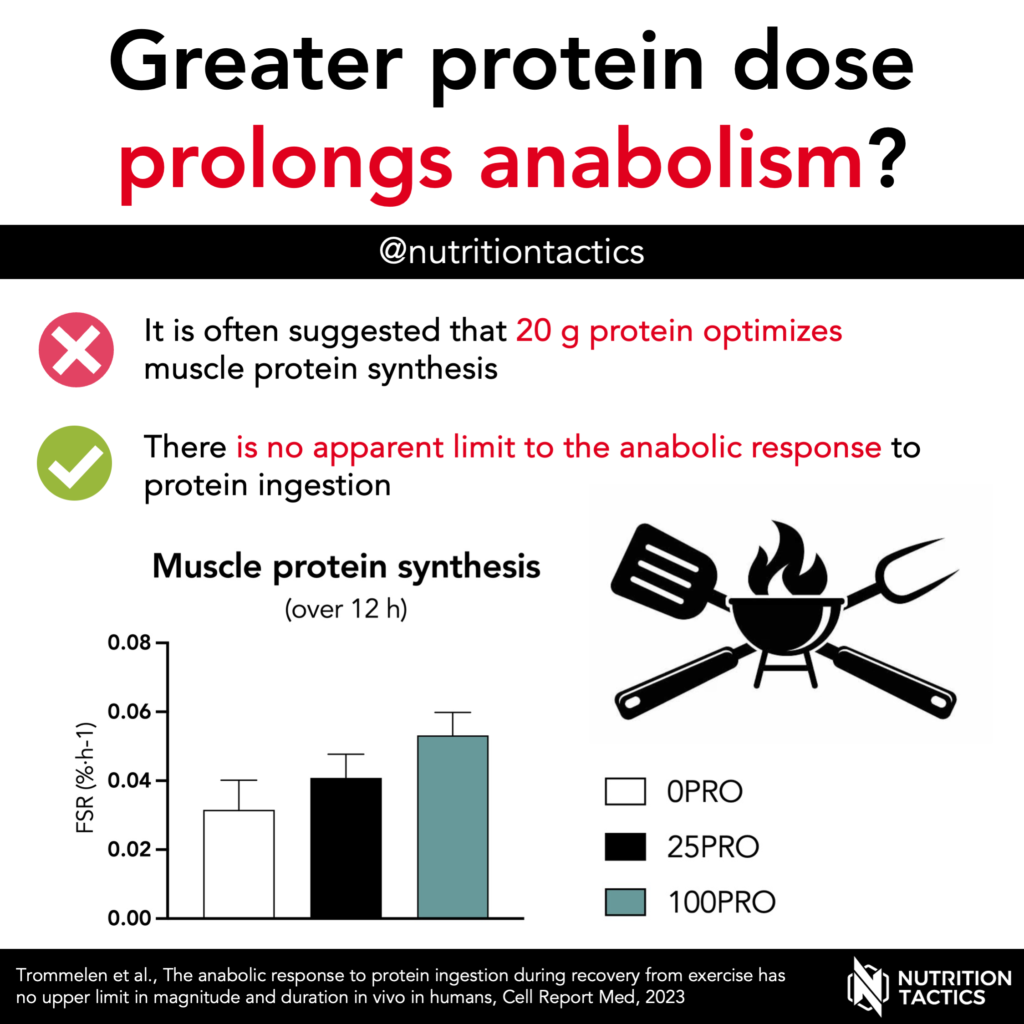How much protein per meal can be used for muscle growth?
It is often suggested that only a limited amount of protein per meal can be absorbed or used for muscle growth. Previous research has suggested that the first 20 g of protein in a meal strongly stimulates muscle protein synthesis (the process driving muscle reconditioning). Further increasing the protein dose to 40 g appeared to have a relatively small additional 10-20% effect.
However, these previous studies measured muscle protein synthesis over only the first 4-6 hours after the meal. But a large dose of protein may need more time to be fully digested, absorbed, and become bio-available for muscle protein synthesis.
In this study, we investigated the effect of 0, 25, and 100 g of milk protein on muscle protein synthesis rates in healthy young men. We assessed muscle protein synthesis over a 12-hour period following a resistance exercise training bout.
Muscle protein synthesis rates and whole-body protein net balance were much higher following the ingestion of 100 g compared to 25 and 0 g. At the end of the 12 hours, part of the 100 g was still being digested and absorbed.
These data suggest that ingesting a large amount of protein results in prolonged absorption and anabolism. This undermines some of the rationale for protein distribution, for which the overall evidence was already weak.
The practical takeaway is that you can increase the amount of protein in a meal to sustain the anabolic response longer. This would be helpful when you can’t or don’t want to consume your next meal in the next few hours.
Go to the next infographic in the protein series:
How much pre-sleep protein is needed?


Thank you; could you explain how that considerable amount of MPS is achieved even with 0% protein? Perhaps this is due to after-strength training session.
MPS is always ongoing. In a basal state (resting, no food), MPS is still ongoing. Protein breakdown provides amino acids that are used for MPS. But in that scenario, you are only “recycling” the protein in your body. To actually have a net gain, you need to consume protein.
Ronnie Coleman style! Over 100g protein post workout and another 100g pre bed.
Hi Jorn, thanks for the article. was wondering what about in the context of whey protein? is it similar to the milk protein in this study?
I would assume that it would be different in that 20g would be optimal, 40g would help increase MPS by 10-20%